This essay is part of a larger project exploring Christian innovation and design, a topic of some interest among the preachers, leaders, and innovators of the Fossores Chapter House. Here, we’ll be examining examples of technology in the Bible, hoping to discern what technology is and how it might be constrained toward godly purpose.
Let’s begin, first, by providing a biblical definition of technology. Our English word ‘technology’ is derived from two Greek words: techne (meaning art, craft, technique, or skill), and logos (meaning word, dialogue, or the way in which opposite extremes are brought together). Technology once referred to the discourse concerning how things are made, but now concerns the crafting of new means toward desired ends.
Though this definition borrows from ancient Greek, it’s important to realize that the same concept was present in the Hebrew culture of the Old Testament as well. So, when we inquire as to how technology was used in the Bible, it shouldn’t surprise us that there are many, many examples of technological innovation and of the use of technology to complete tasks ranging from household chores to agriculture, warfare to music, architecture to fashion, and beyond.
How was technology used in the Bible? While the Bible never describes technology directly, we see ample evidence of technological use and innovation in the descriptions of various tradespeople. By mentioning silversmiths, for example, it’s clear that the technological processes of metallurgy and smelting and refinement were already well in use.
There were various such craftsmen mentioned in the Bible, including carpenters, cabinet-makers, wood-carvers, manufacturers of wagons, baskets, and household utensils. They also worked in agriculture, making tools such as ploughs, yokes, threshing-machines, goads, and winnowing-shovels. Musicians and luthiers, too, were prominent in scripture, including those who crafted stringed instruments like the harp and the lyre, as well as percussion instruments like the timbrel, cymbals, and bells, and wind instruments like the reed-pipe and shofar. Metal workers mentioned in the Bible were goldsmiths and silversmiths, workers in brass and iron. They used tools such as the anvil, bellows, smelting-furnace, fining-pot, hammer, and tongs. They produced various products such as settings for precious stones, gilding, axes, saws, sickles, knives, swords, spear-heads, fetters, chains, bolts, nails, hooks, penstocks, pans, ploughshares, and wheels of threshing-instruments. Other artisans mentioned include stone-masons, brick- and tile-makers, engravers, apothecaries, perfumers, bakers, tanners, fullers, spinners, weavers, and potters. Trades and mechanical arts became prominent during the reign of Solomon and his successors, but were first mentioned in Genesis 4 as part of Lamech’s children.
These skilled craftsman, called tektons, played various roles in ancient times. We are most interested, however, in the fact that Jesus himself was described as a tekton which means Jesus was involved in the technology of his day. Jesus learned this trade from his foster father Joseph, whom the evangelists Matthew and Mark describe as a “carpenter” or “joiner”. However, it is important to note that in the Palestine of Jesus’ time, being a “carpenter” or “joiner” was a generic qualification that encompassed various woodworkers and craftsmen involved in construction-related activities. This work involved using heavy materials such as wood, stone, and iron and—more importantly—the use of technologically advanced tools (for the time) such as chisels, axes, froes, adzes, mallets, and (less frequently) saws. These would have been crafted in steel, iron, or bronze with wood handles—demonstrating, again, the prevalence of technological innovation to such a degree that it was almost invisible on account of its commonality.
Technology is a profoundly human reality that enables us to exercise dominion over matter, reduce risks, save labor, and improve living conditions. Technology is not merely a tool but reveals and forges human identity and aspirations towards development. It is a response to God’s command to till and keep the land, and it should serve to reinforce the covenant between human beings and the environment.
Here, then, are 5 benefits of technology to religion:
1. Technology enhances human creativity, allowing us to generate and iterate ideas at a pace previously unheard of. This has great implications for theology, liturgy, formation, and mission.
2. Technology improves living and working conditions, allowing us to serve more people in more ways, simultaneously taking care of their spiritual, physical, and material needs.
3. Technology democratizes dialogue about religion and spirituality, allowing previously suppressed voices and opinions to be adjudicated on their merit rather than their pedigree.
4. Technology allows for rapid cross-pollination, which means we can synthesize wisdom from the fields of science, medicine, philosophy, etc. without needing to be experts in any of those fields. Such insights will provide sobriety and nuance to our theological reflections, our cultural engagements, and our hopeful forays into the future.
5. Technology fosters non-local connectedness, whether with communication, spiritual oneness, financial provision, or distance learning. We have access to tremendous resources, people, and experiences that remind us we are not alone, no matter how isolated we feel.
However, as we’ve previously stated, just because there are positive effects of technology on religion and spirituality doesn’t mean there aren’t also negative effects of technology on spirituality. For example, there is a danger of technology becoming an ideological power that confines human beings within a technocratic cultural perspective. We can easily be deceived into thinking all our problems can be technologically solved. But healthy development—both of people and of technology—will not be solely focused on efficiency and utility, but a holistic understanding of what it means to be human and to act responsibly within God’s Creation.
This leads us to articulate the 5 drawbacks of technology to religion:
1. Technology can create new forms of inequality. When some people have access to the best tools and information systems, and others do not, there exists an entirely new class structure with obvious disadvantages for the “have-nots.”
2. Technology can concentrate power. Coercive use of technology can limit which information gets through to which audience, drastically altering cultural narratives. Additionally, those with excessive weapons-technology can leverage their superior might to potentially lethal and oppressive ends.
3. Technology can create relationships of dependance. It’s no secret that some have become entirely too reliant upon their mobile devices for even the simplest tasks, creating near-vegetative people slumping their way through life disinterested in anything other than their screens.
4. Technology can provide access to depravity. Whether pornography or narcotics or black market biomedical engineering, there seems to be no limit for people able to hide their deviance.
5. Technology can be a platform for unhealthy and destructive ideas. The Internet, in particular, has made access to racist, misogynist, and bigoted ideas seem more valid, more prevalent, and more appealing than ever…which is truly, deeply, terrifying.
Even so, we must remember that nowhere in Scripture is a technology condemned for being evil. Scripture shows that technology and tools can be used for both good and evil. Even if a tool was designed for evil, the tool itself isn’t evil.
As my daughter likes to quip, “Without the invention of the wheel, Jesus could never be invited to take it.”
Uses of Technology and Media in Church Ministry
There are countless applications of technology in Christian ministry. Years ago, for example, I crafted a new media design for our congregation based upon Google’s multi-screen use report. According to the report, people use computers to stay up to date and to find important information. We use smartphones to keep us connected and entertained, typically in short(er) bursts with a demand for immediate satisfaction. We use tablets primarily for entertainment. They are the most relaxed and leisurely of media and we are most likely to be multi-screening while using them.
In church, we decided to adapt this information and began to use our main center screens to function most like a laptop (finding information, showing research and data, etc.), while we used vertical screens/televisions to function as phones (showing memes, highlighting key quotes, displaying related scriptures) and any side/peripheral screens to function as tablets (showing pictures, displaying visuals designed to stimulate and entertain).
The use of such visuals in church can be a powerful tool for storytelling and enhancing the worship experience, specifically by crafting a story and inviting people into that story as their own. Such uses include:
Visual Illustrations: Display images, graphics, or videos that visually represent a particular biblical story, parable, or theme. This can help create a deeper connection with the scripture or sermon, making it more relatable and easier to comprehend.
Environmental Enhancements: Create immersive environments by projecting images or videos that relate to the theme or story being told during the service, especially in ways that break the fourth wall (i.e. projection mapping).
Multimedia Presentations: Incorporate multimedia presentations, combining visual elements, audio, and videos to effectively communicate and tell a story. This can include testimonies, documentary-style videos, VJing, or multimedia sermon illustrations that expand on a theme or narrative. This can also include real time use of AI technology to serve as a “sparring partner.”
Sermon Support: Visual aids, such as images, graphs, or charts, can be displayed to make complex ideas or concepts more accessible. Visuals can enhance understanding, provide context, and reinforce the story or message being shared by the speaker.
Creative Worship Experiences: Craft multimedia performances, artistic expressions, or multimedia prayer experiences that immerse the congregants in a multisensory environment that deepens the storytelling and worship encounter.
Interactive Elements: exhibits that are altered based on the participants’ choices and engagement (this can be as simple as a poll with results displayed on the screen in real time, or as elaborate as an augmented reality experience with touch-screen and VR technology).
Which verse in the Bible talks about technology? Again, there are many places where the Bible assumes the existence of technology, but few actual mentions of technological innovation. Perhaps the clearest verse in the Bible that talks about technology is 2 Chronicles 26.15:
“In Jerusalem [King Uzziah] made machines, invented by skillful men, to be on the towers and the corners, to shoot arrows and great stones. And his fame spread far, for he was marvelously helped, till he was strong.”
Other verses that suggest technological development include a prophecy in Daniel that ‘knowledge shall increase’ (Dan.12.4) and a fascinating observation in Proverbs 25.2 that “it is the glory of God to conceal things, but the glory of kings to search things out” inferring that God enjoys our process of discovery, of innovation, and of scientific pursuit.
Other examples of technology in the Bible include Cain building a city (Gen.4.17), Tubal-Cain’s use of metallurgy (Gen.4.22), Noah’s engineering of the ark (Gen.6), erecting Babel (Gen.11.1-9), David’s use of musical instruments (2 Sam.6.5), the construction of Solomon’s temple (1 Ki.6), Jesus’ use of tools as a craftsman, and Paul’s use of pen and ink as an epistolary statesman.
Technology expands what is possible for humans to do. It can be best thought of as a catalyst or an accelerant for change because it opens new opportunities. Broken people are the ones who create these tools, and also the ones who choose how we use them. Paul reminds us that each of us has fallen short and needs to repent (Rom. 3:23). Our technology is not sinful, we are. Likewise, we are capable of redemption and of using all that we create for redemptive purpose.
In case you need a refresher about what Romans 3:23 says, Paul reminds us that ‘all have sinned and fallen short of the glory of God.’ In our discussion here, it’s best to consider Paul’s words a warning that we all share the proclivity for making bad decisions, perhaps especially with technology.
While the Bible does not specifically address modern technologies like artificial intelligence or the internet, it does provide teachings on the dignity of the human person, the responsibility to care for the earth, and the importance of community.
What does the Bible say about machines? Again, only 1 verse in the Bible specifically addresses machines:
“In Jerusalem [King Uzziah] made machines, invented by skillful men, to be on the towers and the corners, to shoot arrows and great stones. And his fame spread far, for he was marvelously helped, till he was strong.”
– 2 Chronicles 26.15 (ESV)
Our God-given mandate to ‘fill the earth’ includes God’s intention that we would cultivate the latent potential in Creation. Technology in general, and machines in particular, are absolutely part of this potential. This means there are innumerable opportunities for us in the realms of art and architecture, aesthetics and tool-making, agriculture, fashion, food, music, and theater…just to name a few. Likewise, the biblical command to “subdue the earth” assumes our relationship with technology, as it is a product of our intellect and a confirmation of our dominion over nature.
So, while you’re not likely to find actual bible verses about robots, you can study the scriptures and begin to understand that the Bible nevertheless provides moral and spiritual guidance toward our engagement with robotics, genetics, information-technology, and nano-technology, etc. Such theological reflection is critical, given the rapid pace of change we experience in modern times. A healthy relationship between technology and Christianity indeed requires that we delve into these issues and ask questions like “What does the Bible say about artificial intelligence?”
Again, while we aren’t likely to find specific Bible verses that address things that had yet to be invented during the composition of scripture, we can still turn to the Bible for the raw materials of future insights. What does 2 Timothy 3:16 say, after all? “That all scripture is God-breathed and is useful for teaching, rebuking, correcting and training in righteousness, so that the servant of God may be thoroughly equipped for every good work (2 Tim.3.16-17).” Paul’s intention, I think, is to remind us that if we keep searching, we’ll keep discovering. Much like a diamond turned over in our hands continues to catch new light, scripture, turned over in our minds, continues to illuminate.
For example, it doesn’t take a great imagination to realize there will be entirely new kinds of life on earth in the next hundred years. What are we to make of this, biblically? Some new life will be entirely artificial, and we will always wonder if they are “truly” alive. Some new life will relocate the old into the new, and we will always wonder if that’s “still them.” Some new life will be hybridizations; like, perhaps, the offspring of two androids, or the descendants of an artificially inseminated clone.
My point is that there are people currently making people.
For example, investors put almost $170 million into robotics startups in 2014, and an unprecedented 25 robots competed in the $3.5 million Darpa Robotics Challenge Finals in 2015.
Given that this is a reality, we ought to consider what the robot-world means for us and whether our faith has any bearing on the spiritual wellbeing and cultivation of new people.
I think, clearly, it does.
Historically, the Church has most often interacted with new people in exploitative and hostile ways (the indigenous people of North America, for example, or the Australian aborigines and nationals of India). But, where other human peoples had moral and relational paradigms to guide them, technologically new people (‘teleosapiens’) would be cognitively and historically un-storied. They would have no gods or laws to curb their baser impulses. They will come into the world having been created by men, and men are corrupt.
Consider, then, what might happen if the first generation of new people only ever experience hatred and fear from the Christian Church. What would happen if they are forced to rely solely on the wisdom and virtue of those who wrote their programming?
The church of the future must be willing to acknowledge the possibility that new people are alive, that they have souls, and that they must be treated with dignity, respect, and honor. Not necessarily because teleosapiens are human, but because we are.
The issue of where our soul comes from has been on the table with differing kinds of new people for much longer than we might assume. Monozygotic (identical) twins, for example, occur when a single fertilized ovum splits during the early stages of embryonic development and forms two separate fetuses. One of the reasons cloning has become so controversial in the last several decades is because the same biological process occurs in many cloning procedures, except that the zygote is intentionally split in a controlled laboratory environment rather than naturally in utero. But in both the case of monozygotic twins and laboratory cloning, the two resulting human beings carry the same phenotype (observable characteristics of a living being) and genotype (genetic makeup). No one has ever questioned whether twins have a soul, so it is reasonable to assert that clones might also have souls, given that the biological process is the same.
And what “is” a soul? In Genesis we’re told God breathed his breath into Adam, thereby imbuing him with a soul. The soul wasn’t innate to Adam, but implanted. Yet Adam’s soul was mysteriously passed onto Eve, who then birthed new people with souls already intact. Doesn’t this, at least, leave room for the possibility that the souls of new people could likewise be implanted, perhaps through a process like zygote-splitting?
New people, once simply robots, would be like idols that come to life.
Genesis tells us God made humanity in God’s image and likeness. That word “image” (tselem) can also be translated “idol.” The many prohibitions in scripture against idolatry are concerned with those who reduce God to a little wooden statue. But God intends to enhance his imagery, rather than allow people to reduce his divinity; consequently, God wants idols that move and think and can act independently. And it is that independence with which God first marks human distinctiveness. With consciousness comes agency, and with agency comes responsibility; and God works in his people through conscious, responsible action.
Could God also do this with other new people? Is there a better word than “soul” for the self-aware, morally conscionable, aesthetically-driven choices of teleosapiens? If we engage the possibility that clones have souls, then we must also acknowledge that human beings can make other human beings through means distinct from “the natural path.” And if humans can create souls, we must also wonder if humans have the ability to create souls in non-human things as well.
Can we meld quantum physics and metaphysics? Can we put a soul into a robot? A vehicle? A mechanical pet?
I maintain our cooperative work with God entails perpetuating what God began in the garden. By design, the garden was a starting point, and human beings are meant to keep the earth growing in wonder and complexity, innovation and change.
This has startling implications. Many ethical debates have centered around “when human life begins” in utero, but the church of the future will also wrestle with when “human life begins” ex technium (through science and technology), just as she must engage when human life might cease to retain its humanity.
Our humanity is revealed in the way we treat others. As Bishop Desmond Tutu famously stated, “A person is a person through other persons.” And the evolution of teleosapienism will require us to rethink the boundaries of goodness and morality.
The first ethical issue we’ll need to resolve is slavery. Why? Because people are making sex-robots, and the edge of innovation in teleosapienism is the desire for a better orgasm. But what happens when those new people gain self-awareness? What happens when they learn their only use is abuse at the hands of those who cannot function healthily with others? What will happen when new people learn their creators are perverts?
This begins, but does not exhaust, the new arena of consideration for the Church. The renewal of all things has suddenly become far more complex! Human beings, generally, are dysfunctional. We take pleasure in ridicule and celebrate the exploitation of others. We’re greedy. We’re sick. But God won’t give up on his vision for humanity, so neither can we. Christ is the Prototype who has shown us how great humanity can be, and the church of the future will recognize her people have been made by God to be like God, which entails that we treat new people like those who “were once not a people, but are now the people of God” (cf. 1 Pet.2.10).
Is it possible, for example, that new people will have the imago dei by proxy? “[I am working on a catechism for robots because] We are made in the image of God; God is a creator, and God created free-will beings. So, I believe we will create free-will beings in the form of robots. And I believe they will have increasing degrees of autonomy. We will need to educate them about the difference between good and evil, about who made them (and who made us), what to do when they do something wrong. And at some point, one of them will come to us and say, “I am a child of God.” When [that happens], how will we respond? Does Jesus’ salvation cover them? This is a question I’ve been asking theologians. They shrug their shoulders. When we begin to make robots, I think the secular scientific world will appreciate what Christians have been talking about for a long time. If you make something with its own purpose, you need to give it moral guidance. If you give it moral guidance, what values are you going to give it? Teaching technology is like teaching children. At the point we make autonomous robots, Christians can step forward and say, “We know about this.”…It will take every possible type of invented mind to even begin to appreciate the greatness and mystery of God. Our human minds alone are so limited. We need others who “think different.” See “Geek Theologian”, Christianity Today Interview by Katelyn Beaty
What does the Bible say about increase in technology? Truthfully, very little. There is one verse in Daniel that many have suggested refers to an increase in technology in the last days, but that seems like a stretch. A very big stretch.
“But you, Daniel, shut up the words and seal the book, until the time of the end. Many shall run to and fro, and knowledge shall increase.”
– Daniel 12.4
This is supposedly one of the preeminent bible verses about technology advances, but despite the pseudo-obvious link between an increase in knowledge and an increase in technology, it otherwise fails to hold much heft.
However, it is important for us to understand that Christian spirituality contends for the redemption of the Earth and all its contents. We uphold the mandate to revalue the world and hasten the day when greed and consumerism are exposed, arrogance and irreverence are unplugged, when hurry and selfishness are repented of and when the sacred-secular rift in our thinking is healed. We must not merely ascribe to such faith, but take an active role in redemption. Like our Creator, we must enter the world and transform it, rather than hope our good thoughts and smiles contribute to lasting change.
Technology will increasingly affect sociology and anthropology, and the Church is better primed to help the world answer these new questions than anyone else. The Church of the future will press aggressively into the overlap between science and technology, recognizing that every new discovery and every new advancement is a manifestation of our obedience to the cultural mandate.
What does the bible say about technology in the last days? Daniel 12.4 is often supplied when you Google “bible verse technology will increase”, but the truth is that Daniel refers to “knowledge” increasing, not specifically “technology.” So, while the Bible does not explicitly mention technology in the last days, the Cultural Mandate of Genesis 1.26-28 provides insights into the biblical perspective on Creation and the human family. Genesis emphasizes God’s care for humanity and the importance of human growth, freedom, work, and relationships. The Creation account highlights the unique dignity of human beings, created in the image and likeness of God, and the unity of the human family. Although the references do not directly address technology in the last days, they lay the foundation for understanding the biblical perspective on human existence and the divine plan for humanity.
According to Clement of Alexandria, the Bible also emphasizes the importance of good works and using one’s skills and abilities for the benefit of others. He quotes the Scripture saying, “Good works are an acceptable prayer to the Lord” and describes the manner of prayer as acts of kindness and compassion towards those in need. This implies that technology, when used for good works and to help others, can be seen as a form of prayer and a way to fulfill God’s commandments.
Conclusion
Technology presents unlimited opportunities for cooperation with God in the redemption of all things…and a few dangers. We ought to work toward a Church that raises technologists the way American churches once raised gospel singers; a church that develops and implements new strategies for the holistic integration of science, technology, and faith; a church that melds metaphysics with quantum physics, that believes our humanity is revealed through our treatment of others.
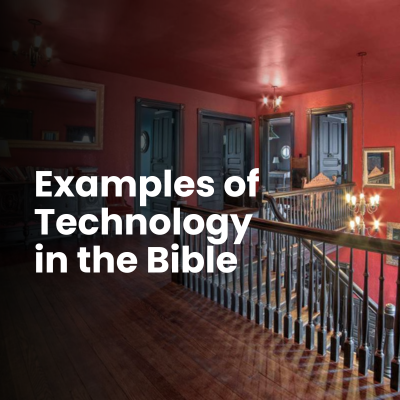
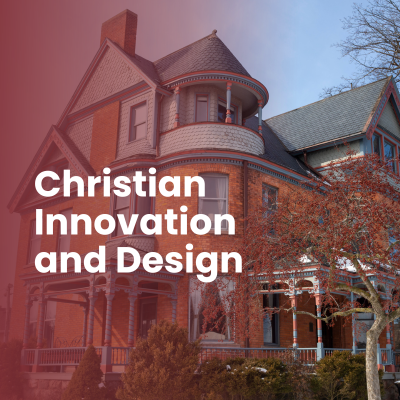
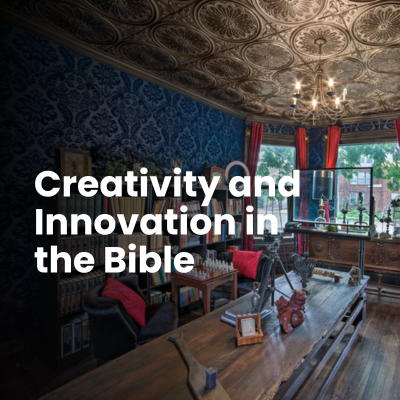
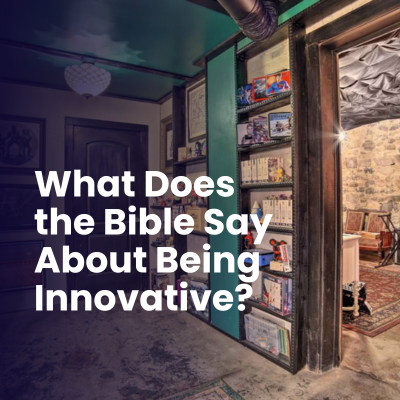
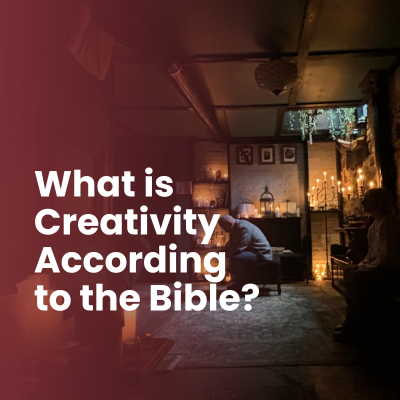
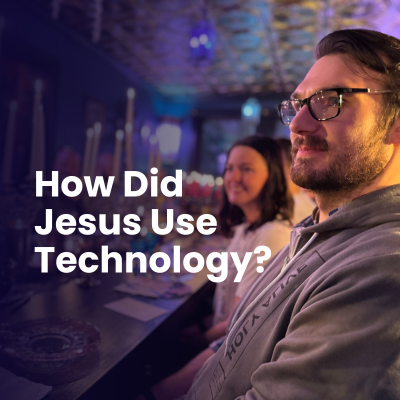
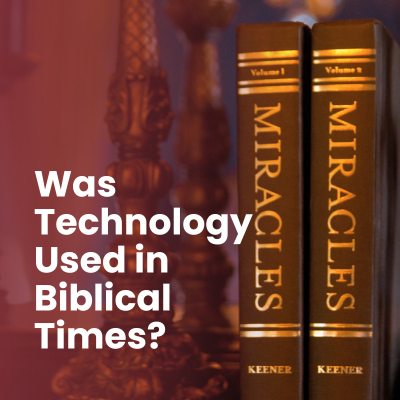
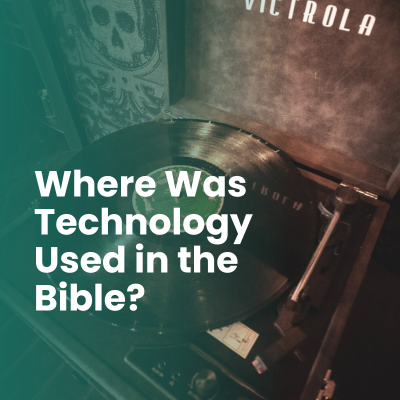

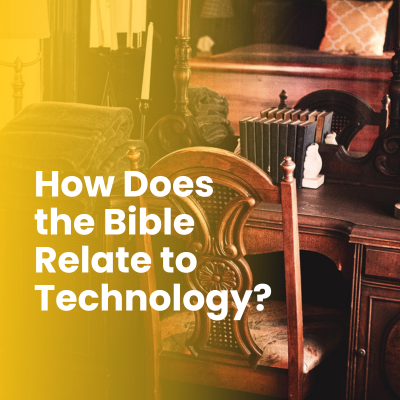

Leave a Reply